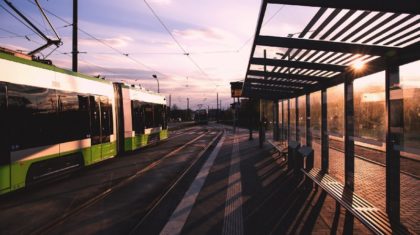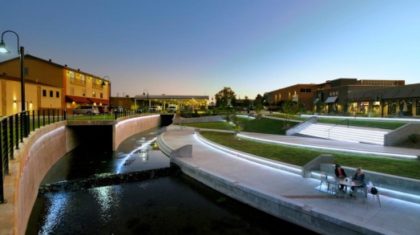
I don’t know about you, but whenever I need to get from point A to point B, first I draw up a spreadsheet so I can compare the costs, anticipated time, risk of delays, and…KIDDING! Of course I don’t do that — I’m a busy person, not a computer! No, like most people, I’m not actively making choices about how I get around for most of my trips. I’m just on autopilot.
Of course, my autopilot is either biking or transit, but the vast majority of Americans’ autopilot is the car, often with nobody else in it. If you’re reading this, I don’t need to explain to you why this isn’t working — for our health, for the environment, for the economy. We simply need more people to get off autopilot and make a different choice.
If only it were as easy as putting out a few billboards! But it isn’t. In fact, transportation habits are one of the hardest habits to change. Research has shown that simply giving people information about transit, carpooling, and active transportation is not enough.
To get different outcomes, we need to work on land use, pricing, and supply (frequent, high-quality transit and plentiful bike/walk facilities). But we also need to learn about how to create campaigns and programs that actually change habits. That’s where behavioral science comes in.
Behavioral science is where psychology and economics come together to understand how humans actually make decisions, especially when those decisions don’t seem like they’re maximizing our health, wealth, and happiness. You may have heard of it in popular books like Nudge, Thinking Fast and Slow, and Switch. Cities around the world have created teams that are applying behavioral economics to improving government programs and accomplishing important societal outcomes. This field is helping to increase organ donation rates, decrease tax delinquency, improve the diversity of job candidates, and get unemployed folks back to work faster.
The next big frontier for behavioral science is transportation. There is a growing community of academics and practitioners who are asking questions like:
- How can behavioral science help us understand why people choose the car?
- What types of “nudges” have worked in other fields to change entrenched habits, and can they work for transportation?
- How can we test out our ideas with enough rigor that we can be sure if they work?
Alta is proud to be part of this movement. We had the pleasure of working with the world-renowned Behavioural Insights Team on behalf of Translink to create the first major report linking specific behavioral science principles to transportation habits, titled Applying Behavioural Insights to Transportation Demand Management (which was distinguished with the Association for Commuter Transportation 2018 Excellence in Research award.)
Since that report, we’ve stayed busy. Here are just some of the activities we’re working on.
- In 2018, we commissioned exploratory research related to using “nudge” concepts in bike share, employer TDM programs, and transit card rollout. We continue to be involved with a Harvard doctoral candidate whose dissertation work emerged from this effort. We’ll share the findings once her study is published.
- We’ve talked with app developers about how to integrate behavioral concepts and proper evaluation in their products. Discussions are ongoing; if you’re using LUUM, Ride Report, Ride Amigos, or Agile Mile (formerly NuRide), get in touch! We have specific ideas ready to go.
- We’re collaborating with researchers who are studying the reasons people choose to carpool. If you run a carpool program, we can connect you with this research team to explore a partnership.
- We taught a well-attended Portland State University webinar introducing behavioral science concepts to transportation professionals — take a look at the recording and let us know if you have any questions or comments!
- We’re developing specific test ideas related to loss aversion, social norms, the “fresh start effect,” message timing, and communication channel (e.g. texting vs. email). Feel free to get in touch if you’d like to learn more.
2019 will be a major leap forward in integrating behavioral science into transportation campaigns, and Alta is proud to be at the leading edge. We’ll keep you updated as we learn more.
Please contact Jessica Roberts if you’d like to explore these ideas and subscribe to our monthly newsletter here.


